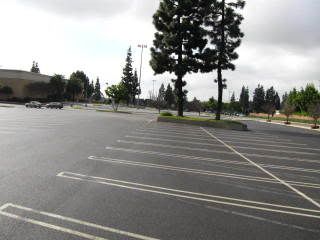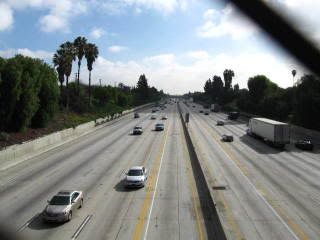(noon. – promoted by ek hornbeck)
This is a diary about the social imaginary — those aspects of our everyday practice that depend upon our imagining the existence of social institutions. As our social institutions are increasingly inappropriate to our physical survival on planet Earth, we should be in the business of imagining new institutions which will give us a fighting chance. I will investigate the case of global warming to discuss why this is so, and end with a series of photographic reflections.
The concept of “social imaginary” was developed as a tool of social critique by Cornelius Castoriadis, a philosopher whose pessimistic assessment of the present-day “social imaginary” will be examined in detail here.
(crossposted at Big Orange)
We need a new social imaginary.
Cornelius Castoriadis, the social philosopher who most prominently re-thought the concept of the “social imaginary,” saw this, and advocated it. When asked whether or not he was a revolutionary, four years before his death in 1997, here is what he said:
Revolution does not mean torrents of blood, the taking of the Winter Palace, and so on. Revolution means a radical transformation of society’s institutions. In this sense, I certainly am a revolutionary. But for there to be revolution in this sense, profound changes must take place in the psychosocial organization of Western man, in his attitude toward life, in short, in his imaginary. The idea that the sole goal of life is to produce and to consume more-an idea that is both absurd and degrading-must be abandoned; the capitalist imaginary of pseudorational pseudomastery, of unlimited expansion, must be abandoned. That is something only men and women can do. A single individual, or one organization, can, at best, only prepare, criticize, incite, sketch out possible orientations. (From “The Revolutionary Force of Ecology”, p. 113 of The Rising Tide of Insignificancy)
So it is this social “imaginary” that needs changing. Let’s get a definition up here. What is the “social imaginary”? The social imaginary is that set of assumptions, assumptions about meanings and about social relations, which we have to imagine in order to “perform” the particular society to which we belong. The “social imaginary,” in short, is the invented symbolic order of a society, the illusions it creates and maintains so that, for instance, people will behave like the “economic man” presumed in economics textbooks, those “maximizers of value” who see wages as the reward for work and who consume products as befitting their imagined notions of happiness. And so society circulates its values through commonsense notions imagined around illusory “realities”:
Money: the reward of labor, and the ticket to the pleasures of consumption. Everyone should want more money, because having it is the key to controlling social labor, the “way to get things done.” However, one shouldn’t be “greedy” and want too much money — the Bible says that’s immoral. Money can purchase anything, except those things which are illegal, and those are purchased only by criminals. Only the government can print money; other money is “counterfeit.” Money can now be mere pixels on a screen, or data on a credit-card machine; it is no less powerful for being that than it would be if it were coins or bills.
Private property: the set of laws ordaining the absolute control over things by individual people, or by businesses or corporations. Property is nine-tenths of the law, except where there is a compelling state interest, and the state’s main duty is to keep the economy happy and growing, because this will keep tax revenues coming in and social services will then be funded.
Law: Law is a set of symbolic ideas. A series of dicta, written up in books, tells the police what to enforce, the judges and juries how to interpret action, and the lawyers what are the criteria for an effective plea (“he’s innocent because…” “he’s guilty because…”). Breaking the law is immoral, or at least that’s the government’s idea of it — if it’s an important law, you’re a criminal, a felon; if it’s an unimportant law, a misdemeanor, you’re a scofflaw. (Believers in civil disobedience may imagine exceptions to these imaginary presuppositions.) Prison is typically imagined as the “just desserts” for lawbreakers; other typical outcomes are fines, probation, parole, community service.
I am not trying to make fun of these things here. I am merely trying to point to the difference between institutional reality and physical reality. All of these concepts, money and private property and law, are represented by institutions. These institutions are “real” in one sense, in the sense that money and private property and law require some sort of material representation (a bill or coin, a title deed, a book of statutes, prisons, cops, judges etc.) in order to be regarded as really existing. But the “real” aspect of all of them is not enough. The social validity of these institutions is reinforced by constant interpretation and reinterpretation of “the rules” by the public at large (and by the officialdom held responsible for maintaining the social order), and thus we can see a social imaginary necessary for the maintenance each of them.
This “social imaginary,” then, is the prop I wish to replace. If there were a new social imaginary, we would imagine (and then bring into being) a new set of social institutions, out of the same material reality we live with today.
Now, we could conceivably have a society without money, private property, or law. Let’s look at how that could conceivably happen:
Money is used to distribute goods and services, but we could instead have an economy based upon barter or gift or time dollar systems. Our money system is based upon debt, in which money is created along with debt. We could have a credit-based money system instead of a debt-based money system, but we don’t.
Private property is the legal basis for personal possessions; but it doesn’t have to be. People could still have personal possessions, and stealing them could be enforced through the disapproval of the group without there being private property. Property could be communal property instead of being private property.
Law enforces social morality: society regards it as immoral for individuals to steal, use illegal drugs, murder, assault others, commit fraud, and so on, and so all of these things are illegal. But social morality could be enforced through other means than law: there could, for instance, be strictly moral criteria for the resolution of personal grievances in public discussion. There could also, moreover, be alternatives to the remedies we’ve imagined so far for the breaking of laws; there are even a few existing groups dedicated to changing the social imaginary on this plane.
Why don’t we do any of these things? Part of it is that we can’t imagine any alternative social order where money or private property or law are handled differently, such that it would be a better social order than the one we’ve got now. Another part of it is that, even if we could imagine another, better social order, we wouldn’t (in ourselves) have the social power or the collective will to “make it so.”
We are not going to be able abolish money or private property or law by fiat, as imagined dictators of (name your favorite nation-state). One of Castoriadis’ primary criticisms of the Soviet Union was that it tried to create the “classless society” by decree, while in fact leaving a class society, of workers following orders from a privileged class of bureaucrats, in place. If we are to change the social imaginary, the whole of society must be willing to make the conceptual leap. Not necessarily together, mind you, but at least in groups. We all imagine society together — we must all imagine it differently together. As Castoriadis suggests:
That is something only men and women can do. A single individual, or one organization, can, at best, only prepare, criticize, incite, sketch out possible orientations.
So why is the existing social imaginary in need of change?
I have a number of reasons. Let’s start with the one I think will be most persuasive: the existing social imaginary is incapable of creating a society that can deal effectively with abrupt climate change. It is caught in a pattern of indefinite denial because, even though the nations whose leaders once denied that it was happening have “come around,” the consensus among the global capitalist “leadership” is that the only measures it will take to deal with abrupt climate change are those which will not “hurt business,” e.g. cap-and-trade schemes, which do nothing to prevent oil, coal, and natural gas from being taken out of the ground and consumed.
Meanwhile, the entire world-economy balances on the possibility of corporate profit, which is established by raising revenues (a goal more difficult when the consumer classes in the US are neck-deep in debt, to be sure) and cutting costs (and the main difficulty at present for the “alternative energy” industry is in finding an energy resource that is in fact cheaper than oil).
The universally-professed goal of “cutting carbon emissions” (a curious term in that it does not discriminate between the breath of carbon-burning creatures like you and me, and the exhaust of our fossil-fuel-burning motor vehicles) falls under the category of “too little, too late.” As James Hansen of NASA points out, a reasonable range for world atmospheric carbon dioxide would be around 350 parts per million, which was passed back in the early 1990s. We are, according to NOAA, at 385 ppm, with a 2 ppm yearly uptick. Cutting that to 1 ppm, still an impossible goal under the pressures of capitalist commerce outside of the counter-pressures of an ongoing Great Depression, will not solve anyone’s problem. Meanwhile the methane hydrates beneath the Arctic Ocean are being released.
A real reconciliation between human activity and natural regenerative capacities, a sustainable metabolism of society and nature (as Marx called it, more or less) would oblige the human species to reduce its atmospheric output to below zero; thus the creation of vast terrestrial carbon sinks would seem to be mandated in the coming years. Instead, world society as a whole seems feebly incapable of imagining even the shutdown of coal mines, given the perceived necessity of winter heating by such means.
A near-universal misperception of the role of abrupt climate change in ecological devastation dominates what tiny portion of capitalist publicity is devoted to the event. Abrupt climate change will by no means be the “main course” of ecological devastation. Instead, abrupt climate change will be the coup de grace to a global society which has completely instrumentalized its landscape for short-term economic purposes. The activities of the civilization-as-a-whole, cutting down trees, urbanizing greenbelt, and replacing wilderness with monocrop agriculture, weaken ecosystem resilience; abrupt climate change is merely the knockout blow. Sing C. Chew describes the process in great detail in his trilogy of books, the most recent of which is titled Ecological Futures. In this book, Chew suggests:
Market optimism, regionalization, and globalization policies and practices will be pursued until ecological and natural limits are reached. The “business as usual” approach will be fostered similar to what we witness in the palace-centered kingship economies that percisted at the end of the Late Bronze Age crisis (the second Dark Age (1200-700 BCE, in other words). No doubt, as the catastrophes continue to mount as effects of global warming compound and recur, more stringent measures will be implemented to maintain economic, social, and political control. (130)
Meanwhile, Chew suggests that the coming changes will have to wait for the breakdown of the existing system, at which point the agents of change will finally have the freedom to act:
Furthermore, with energy shortages it is very likely that certain places in the world would become more isolated. By no means should this be seen as negative. Like the monasteries following the collapse of the Roman Empire, isolation can provide the opportunity for innovations as the predominant or common way of managing socioeconomic and political affairs in the globalized world no longer can be practiced or is an option. (130)
This is, of course, a post-apocalyptic vision. There will have to be a rather serious global depletion of resources before any sort of real, objective energy shortage plagues world society enough to destroy globalization. The threat of “Peak Oil” discussed by retired oil geologists is not really a threat of “less oil” so much as it is a threat of less cheap oil, and of worsening ecological degradation as relatively clean fossil fuels are used up and dirtier and more expensive fossil fuels are made to substitute. Thus we are more likely to choke to death than we are to lose our energy sources beforehand.
*****
A SOLUTION
The hopes for some kind of pre-emptive avoidance of its outcome lie in a re-envisioning of the role of human beings in society. Our connection to the land, the water, and Earthly life must become a presupposition of all of our business. In the economic sense, people don’t need “jobs,” they need to be living a sustainable relationship to their planet, every second of every day, which for most will mean directly living off of the land. In the political sense, security is not to be found in the nation-state, but rather in the knowledge that nation-states, such as they are, can be redirected away from goals of “capitalist profit” (which actually entails a loss for everyone involved) toward goals of “life, liberty, and the pursuit of happiness” under conditions of relative equilibrium.
I’m going to leave this diary with a series of re-thoughts on the urban landscape, in hopes that this inspires some revisioning of the social imaginary.

The trees and brush are nice for photosynthetic purposes, but wouldn’t fruit trees feed more people? And why devote so much space (and concrete) to banks? Isn’t real “financial security” to be found in a society which continues to work for one’s well-being even when one has drifted into old age?

This is a parking lot in a state which has declared a “water emergency.” So where does the water go when it rains on this parking lot? What system is in place to catch and use that water? And concrete — its manufacture emits a lot of carbon dioxide.

This is just an enforced desert. Nothing larger than a microbe can live on this freeway, and yet we expect a planet full of wildlife (and our favorite among their progeny — dogs and cats) to coexist with these enforced deserts. Or maybe we don’t care. Isn’t there a better way?

Stores like this must generate a certain degree of “effective demand” — demand backed by money, or they won’t be able to pay rent to the landlords who own them. To do that, they must find ways of getting people with money to consume their products — whether said products are really needed by the paying customers, or no. Think of an alternative.

The real production sites — farms. Every city needs lots of them.

6 comments
Skip to comment form
Author
is just perfect for the time we find ourselves in. Obama has taped into the ability of people to imagine beyond the limits of what we believe to be either inevitable or the natural order. Our concept that war is just the way humans are and we have enemies so we need to fight them was brought home to me today in a thread which was about no bid defense contracts.One of my most liberal friends believes big ag is necessary otherwise we would have no way to feed the masses. When doing art I always think anything is possible, because it exists in the imagination, which for me is as real as anything else.
One of the problems in our society is the size, of our country both governmental and physical. The scale is so large yet so confining. Too big to fall, people think, and the really stupidly limiting political mantra of ‘letting the perfect be the enemy of the good.’ Fear of the unknown can be overcome when what you know turns out to be an unsustainable illusion. If we look to smaller units like our streets our community we can envision what could be.
The other problem that stops us from allowing us to view solutions from the imagination is the slanted centralized information/propaganda we get. Chicken little scenarios that promote fear rather then progress. From schools to news and entertainment were all hooked up to the matrix. Colbert made fun of this by having a Doom Room where he imagined insane scenarios which would occur in 2012 and beyond. My favorite was that congress would be filled with Werewolf’s and could we afford the silver for bullets to kill them. Sometimes imagination can diminish fear if used to show what an illusion our limits are.
rather than asteroid hits earth, north south poles reverse or volcanic activity blots out the sky.
The cold war with mutual assured destruction was only the singular greatest world threat. With our progress we can now generate mutual assured destruction with bio,GM,nano and even the manipulation of mind processes. What was that recent movie, Prozium, it was.
It’s not a new idea, and it’s not a pleasant one but it is the most likely.
http://www.radioliberty.com/st…
Couldn’t pay me to live in the city, don’t like people that much.